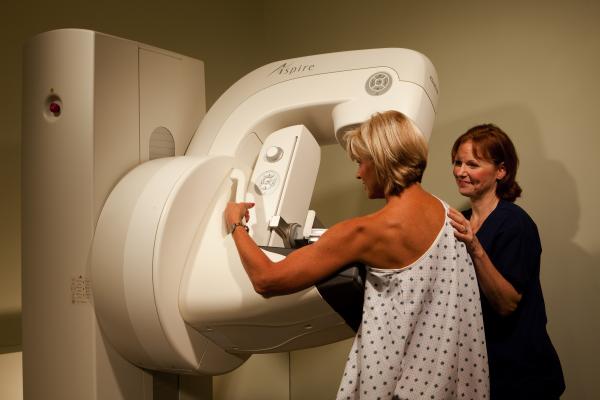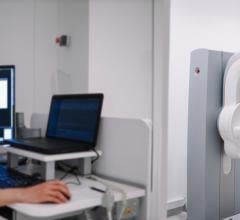
January 11, 2016 — The U.S. Preventive Services Task Force (USPSTF) published a final recommendation statement on breast cancer screening and a detailed review of public and healthcare professional input received on its 2015 draft recommendation. However, there is still debate among physicians about these recommendations and some say they do not agree with them. Some medical experts advise beginning routine mammogram screening at age 40, but the task force is now recommending women delay the screening until 50. The task force also recommends women undergo mammograms every two years instead of annually.
The task force — an independent, volunteer panel of experts in evidence-based medicine — examined the evidence on women who were not known to be at increased risk of breast cancer. The recommendation statement, which is published in Annals of Internal Medicine, is made up of several recommendations addressing different age groups and screening methods, and is accompanied by an editorial on how its findings converge with guidelines from other organizations.
The task force confirmed that screening mammography is effective in reducing deaths due to breast cancer among women ages 40 to 74 years. The greatest benefit of screening mammography occurs in women ages 50 to 74 years, and these women get the best balance of benefits to harms when screening is done every two years. This is a B recommendation.
For women in their 40s, the task force found that mammography screening every two years can also be effective, and recommends that the decision to start screening should be an individual one. The decision should take into account a woman's health history, preferences, and how she values the potential benefits and harms. Women in their 40s who have a mother, sister or daughter with breast cancer may benefit more than average-risk women by beginning screening before age 50. This is a C recommendation.
While the Task Force noted that screening mammography is effective in reducing deaths from breast cancer for women in their 40s, the likelihood of benefit is less than for older women and the potential harms proportionally greater. The most serious potential harm of mammography screening is unneeded treatment for a type of cancer that would not have become a threat to a woman's health during her lifetime; the most common is a false-positive test result, which often leads to additional tests and procedures and may lead to anxiety and stress.
Finally, the task force identified a number of areas where additional research is needed to better understand how screening might reduce breast cancer deaths. Specifically, it concluded that evidence is insufficient to determine the balance of benefits and harms in three important areas: the benefits and harms of screening women age 75 and older; adjunctive screening in women with dense breasts; and the effectiveness of 3-D mammography for the detection of breast cancer. Due to this lack of evidence, the task force is unable to make a recommendation for or against these services.
The task force does not make recommendations for or against insurance coverage; coverage decisions are the responsibility of payers, regulators and legislators. Legislators recently extended a guarantee that women who have private insurance, beginning at age 40, will not have a co-pay for their screening mammogram.
Disagreement Over Recommendations
“Following these USPSTF recommendations would result in lethal consequences for thousands of women each year," said Debra Monticciolo, M.D., FACR, chair of the American College of Radiology (ACR) Breast Imaging Commission. "A recent study in the British Medical Journal confirms that early detection of breast cancer via mammography is critical for improving breast cancer survival, regardless of therapy advances. Moving away from yearly screening in women 40-and-older endangers women, would cause needless death and disfigurement of women, and would simply not be good breast cancer screening policy.”
The ACR and Society of Breast Imaging (SBI) continue to recommend that women get yearly mammograms starting at age 40 as a way to save more lives, the groups said in a statement after the release of the new guidelines. New American Cancer Society (ACS) breast cancer screening guidelines, and previous data used by the USPSTF to create its recommendations, state that annual screening in women 40-and-older saves thousands more lives each year than screening at a later age and/or less frequent screening, the organizations contend.
Currently, the Affordable Care Act (ACA) requires private insurers to cover exams or procedures given a grade of “A” or “B” by the USPSTF with no copay. Medicare determines coverage separately. The Task Force gave routine screening of women ages 40-49 a grade of “C” and gave a “B” grade only to biennial screening for women 50-74. Therefore, women 40-49 who want to get a mammogram and those 50-74 who prefer annual screening may not be guaranteed coverage under the ACA if these USPSTF recommendations were recognized as policy. However, with the inclusion of primary language from the Protecting Access to Lifesaving Screenings Act (PALS Act) in the recently enacted Consolidated Appropriations Act, mandatory mammography insurance coverage for millions of women nationwide will continue for at least two more years.
“This congressionally mandated delay will help providers continue to save tens of thousands of lives each year while the USPSTF recommendations and their creation process are vetted by breast cancer screening experts and lawmakers. Women and Congress need to remain vigilant so that coverage decisions based on these recommendations are not simply put into place by insurers when that is not the intent of the Task Force recommendation,” said William T. Thorwarth, Jr., M.D., FACR, chief executive officer of the ACR.
For the past decade, women have struggled with conflicting recommendations about breast cancer screening, said Catherine Dang, M.D., associate director of the Wasserman Breast Cancer Risk Reduction Program in Cedars-Sinai’s Samuel Oschin Comprehensive Cancer Institute, Los Angeles.
"Mammograms between the ages of 40 and 50 do save lives, but the concern with the U.S. Preventive Services Task Force is that there are more potential harms in terms of more false positives and biopsies in that age group," she explained. "I don't endorse these guidelines, I think all women, even average risk women, should have screening mammograms in their 40s, because the risk of breast cancer continues to go up as you get older.
Dang said women who are confused by the guidelines should discuss the issue with their doctors, because the level of risk is different for some women. The risk is based on family history, reproductive history and their personal medical condition, she added.
For more information: www.annals.org


 April 18, 2024
April 18, 2024 








